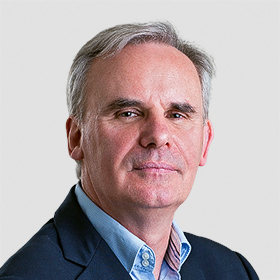Britain has slipped down the global rankings for freedom of the press as a result of the government's crackdown on the Guardian over its reporting of whistleblower Edward Snowden's surveillance disclosures.
The annual index of media freedom, published on Wednesday, attributes the UK's drop to "negative developments", mainly the way the government responded last year to the Guardian with threats of legal action, the destruction of computer hard drives and the nine-hour detention of David Miranda, the partner of journalist Glenn Greenwald.
Freedom of Press 2014 is published by the US-based Freedom House, an NGO established in 1941 that has been ranking countries worldwide since 1980 in relation to democracy, human rights and press freedom.
Click here to see a larger pdf of the map
The organisation said press freedom had fallen to its lowest level for over a decade. It partly blames regressive steps in countries such as Egypt, Libya, Jordan, Turkey and Ukraine, as well as the actions taken against journalists reporting on national security issues in both the US and UK.
Karin Karlekar, the report's project director, said: "We see declines in media freedom on a global level, driven by governments' efforts to control the message and punish the messenger."
Of the 197 countries and territories assessed during 2013, 63 were rated free, 68 partly free and 66 not free.
Britain has dropped from 31st place last year to 36th, ranking it alongside Malta and Slovakia.
"Significant decline took place in Turkey, which fell into the 'not free' category, as well as in Greece, Montenegro and the United Kingdom," Freedom House said.
Snowden, who worked for both the CIA and the NSA, leaked tens of thousands of secret documents to the Guardian and the Washington Post. The revelations about the scope of surveillance sparked a worldwide debate about the balance between national security and privacy.
The British government took a more draconian approach than the US, threatening legal action and sending two members of GCHQ to the Guardian's head office to watch over the destruction of the hard drives which had contained the leaked documents as well as reporters' stories. Miranda was held for nine hours at Heathrow en route from Berlin to his home in Rio de Janeiro.
Countries are ranked from zero to 100 in terms of press freedom, with the Netherlands, Norway and Sweden at the top, each on 10, and North Korea at the bottom, on 97.
Britain remains in the "free" category but is on 23 points, down from 21. The drop would have been much sharper but was partly balanced by what Freedom House viewed as a positive development in reforming the libel law. Countries drop into the 'partly free' category if they drop to 31 points.
The British intelligence services claim the disclosures in the Guardian have created serious damage to their ability to monitor terrorists. Stephen Phipson, a director at the office for security and counter-terrorism, said at a security conference in London on Tuesday that terrorists had substantially changed their methods of communications as a result of the leaks.
"Our adversaries, the terrorists out there, now have full sight of the sorts of tools and range of techniques that are being used by government," he said. "I can tell you data shows a substantial reduction in the use of those methods of communication as a result of the Snowden leaks."
The US also dropped down the Freedom House rankings, from 18 points to 21. Freedom House cited federal government efforts to curb reporters covering national security issues.
"However, a number of negative developments stemmed from the government's response to the revelations of surveillance by the NSA and its British counterpart GCHQ," the report says.
"Authorities used the Terrorism Act to detain the partner of investigative journalist Glenn Greenwald, who broke the story; raided the offices of the Guardian newspaper and destroyed hard drives containing potentially sensitive source material; and subsequently threatened the Guardian with further action."












